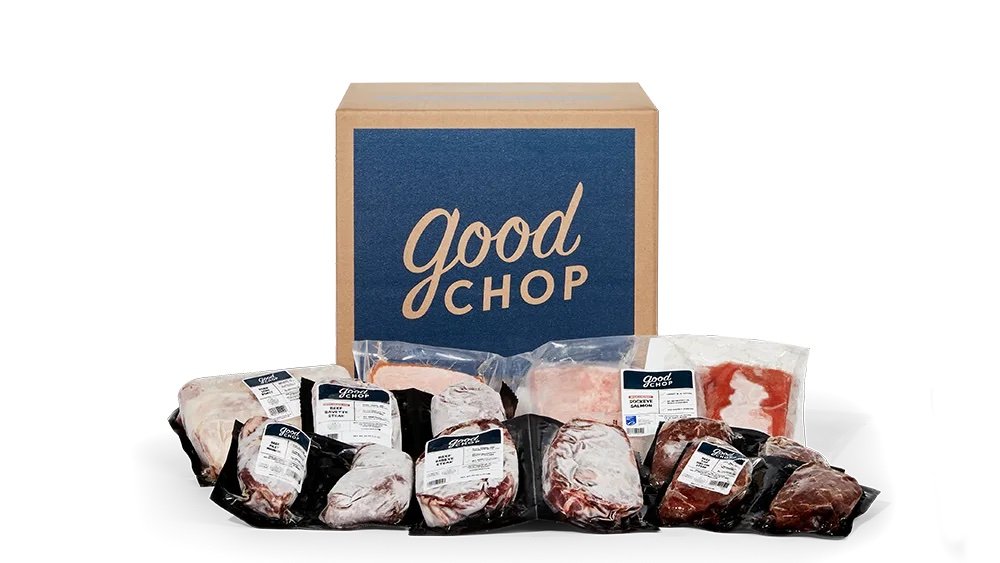The Best Online Organic Meat Delivery Services for Cleaner Eating 2025
As we become increasingly aware of the impact humans are having on the environment, we’re seeking ways to live greener, more sustainable lives.
We’re also trying to be healthier and consider animal welfare too.
When purchasing meat, consumers traditionally consider the quality, cut, and price. However, there is a lot more to think about beyond just those terms.
For conscious consumers who care about reducing their exposure to pesticides, hormones, and antibiotics, organic meat can be a smart choice!
6 Organic Online Meat Brands to Try
If you're ready to shop more sustainable meat you can visit your local butcher or try out one of these online butchers.
These are some of the best meat delivery services featuring the highest quality meat products online and leading the way with more eco-friendly practices in the meat industry.
This post does contain some affiliate links which means The Honest Consumer may receive a commission if you decided to purchase. Our commission is at no additional expense to you!
Crowd Cow's Organic Meat & Sustainable Seafood Delivery
Offering meat and seafood – including free-range poultry such as organic chicken, pasture-raised beef, wild caught fair trade shrimp burgers, and 100% organic grass-fed beef – Crowd Cow works with farmers, fishermen, and producers who implement sustainable practices such as regenerative agriculture.
Their handpicked and taste-tested products are free from antibiotics and their eco-friendly box and packaging is made from recyclable and compostable materials.
I've personally tried Crowd Cow and was impressed with the high quality of their meat. I specifically appreciate that you can read about the farm where your meat is coming from to learn more about the farms practices.
I love their organic ground beef, organic chicken, and wild caught seafood.
Shoppers are able to purchase at any time or they can become a member for their lowest prices and additional discounts.
Crowd Cow has pre-curated boxes, a la carte options, and subscriptions as well. Use my referral link for a $25 discount off your first order with Crowd Cow. The discount will be automatically applied at check out.
Good Chop Most affordable organic meats
Good Chop is on a mission to bring people an online butcher they can trust. They pledge to bring customers quality meat and seafood.
Good Chop partners with family farmers and independent ranchers who share our concern for animal welfare and sustainable practices.
They handle their animals compassionately and humanely, with sufficient space, shelter, water, and a diet free of antibiotics and added hormones.
Good Chop has a range of organic chicken products including organic chicken breasts, drumsticks, wings, and thighs. They also offer organic turkey and ground chicken. Good Chop features more affordable price points for budget friendly shoppers.
I have personally tried Good Chop’s organic chicken breast and wings and was impressed with their lower prices.
Rastelli's Online Meat Market
Starting as a butcher shop in 1976, Rastelli’s has since expanded, now also offering seafood alongside their premium meats.
Their products are free from antibiotics, hormones, and steroids. Rastelli’s products include pasture-raised beef and pork, organic beef and lamb, and organic chicken.
USDA certified meats at Rastelli's include ground chicken, New York strips, chicken breast, and more. Their seafood is wild-caught or sustainably raised in the wild.
The bags in which their products arrive are reusable and the boxes and insulation packaging are recyclable. Customers can save 5% by choosing the monthly subscription service or choose to purchase one time.
I also love that on Rastelli's online store you can also read about the farm where the meat is coming from and learn about their farming practices.
Thrive market budget friendly organic meats
Thrive Market is an online grocery store focused on high quality, sustainable, and affordable groceries.
Thrive Market has a wide range of goods including organic groceries, gluten-free products, meat, seafood, wine, vitamins & supplements, beauty products, and more.
For organic meat they offer organic chicken wings, organic chicken breasts, organic sausage, organic pork chops, organic ribs, organic steak, and more.
Thrive Market does feature budget friendly options for organic meat. However, you do have to be a member by paying a yearly membership fee of $60. Enjoy 40% off your first Thrive Market order and check out my Thrive Market Review.
ButcherBox Organic Chicken
ButcherBox is a certified B Corporation that partners with farms using humane practices. While ButcherBox has quite a few meets, only ButcherBox’s chicken is organic and free range.
Hopefully you've learned about the importance of organic products such as grass fed beef and free range chicken.
If you are able to support your local farmer that uses organic practices that is always a great choice when shopping meat protein, but if not hopefully one of these online butcher shops helps you find a good value on responsibly sourced meats with easy home delivery.
More Sustainable Food and Cooking Guidesnable-food-brand-guides:
MEET THE AUTHORS
INDUSTRY RESEARCH:
Claudia Hauter is a South African writer, copy editor, and content creator with degrees in Drama and Anthropology. She works in television managing web content. When she isn’t reading or writing, she’s walking her dog, finding small businesses and markets to support, or attracting butterflies and bees with her vegetable garden. Learn from Claudia on Twitter or Instagram.
PRODUCT TRIAL & RECOMMENDATION
Emily Waddell is the founder of The Honest Consumer. She has always been passionate about business for good and has a Bachelor degree in Social Entrepreneurship. She currently lives in Seattle where she practices imperfect sustainability. When she’s not writing, Emily enjoys supporting small businesses, clean eating, ethical fashion, and practicing slow living.
For more tips & tricks on sustainable living be sure to follow The Honest Consumer on social media, subscribe to our newsletter, & check out the Ethical & Sustainable Brand Directory.







